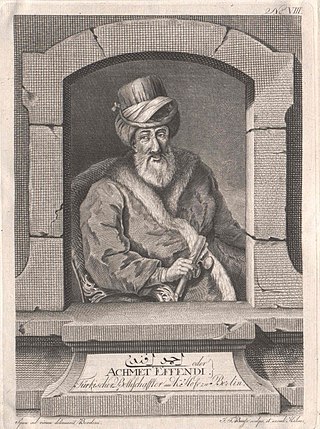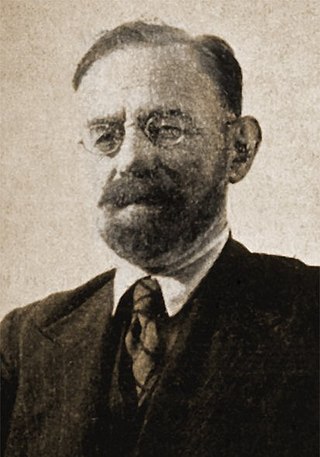The roots of traditional music in Turkey span across centuries to a time when the Seljuk Turks migrated to Anatolia and Persia in the 11th century and contains elements of both Turkic and pre-Turkic influences. Much of its modern popular music can trace its roots to the emergence in the early 1930s drive for Westernization.
Hammamizade İsmail Dede Efendi was a composer of Ottoman classical music.

Mustafa Itri, more commonly known as Buhurizade Mustafa Itri, or just simply Itri was an Ottoman-Turkish musician, composer, singer and poet. With over a thousand works to his name, although only about forty of these have survived to this day, he is regarded as the master of Turkish classical music. In 2012, due to the 300th anniversary of Itri's death, the UNESCO declared 2012 the "International Itri Year".

Hampartsoum Limondjian was an Ottoman Armenian composer of Armenian church and classical music, as well as Ottoman classical music, and musical theorist who developed the "Hamparsum" notation system. The system was the main music notation for Western Armenian and Ottoman classical music until the 20th-century introduction of European notation systems, and is still in use by the Armenian Apostolic Church.

Ahmed Resmî Efendi, also called by some Arabic sources as Ahmed bin İbrahim Giridî, was an Ottoman Greek statesman, diplomat and author of the late 18th century. In international relations terms, his most important - and unfortunate - task was to act as the chief of the Ottoman delegation during the negotiations and the signature of the Treaty of Küçük Kaynarca. In the literary domain, he is remembered for various works among which his sefâretnâme recounting his embassies in Berlin and Vienna occupy a prominent place. He was Turkey's first ever ambassador in Berlin.

Tatyos Ekserciyan, or Tatyos Efendi, was a famous composer of classical Turkish music, and his works continue to be among the most played and revered examples of the genre.

Alafranga and alaturca are musical and cultural concepts specific to the Ottoman Empire and its people. The terms describe a distinction between Western culture and Eastern culture in the Balkans. The labels are now considered outdated, but are useful in understanding Ottoman and Turkish cultural history.

Tanburi Büyük Osman Bey or Tamburi Büyük Osman Bey (1816–1885) was an Ottoman composer and Turkish tambur player. He is considered one of the most outstanding peşrev compositors in Ottoman classical music.
Tamburi Ali Efendi was a tambur virtuoso and composer, one of the most famous among 19th-century composers, who was also notable for having greatly contributed to Tamburi Cemil Bey's development in music. He was from the Ottoman Empire.
The saz semai is an instrumental form in Ottoman classical music. It was typically the closing movement of a fasıl. The saz semai is metered and typically uses the usul called aksak semai.
Effendi is a title of nobility.
Bedriye Hoşgör (1889–1968) was a Turkish composer.
Bîmen Şen was a composer and lyricist of Armenian descent.
Bolâhenk Nuri Bey (1834–1910) was a Turkish Ottoman composer. Nuri Bey's compositions serve as grand examples of the classical styles.
Buhûrizâde Abdülkerim Efendi was an Ottoman poet, composer and Sufi prayer leader. In his compositional work, poetry or music, Buhûrizâde wrote under the name Kemter, a Sufi pseudonym meaning "poor", or "pitiful".
Yorgo Bacanos was a master oud player and improvisational composer of Ottoman classical music. His father Haralambos was of Greek Romani descent, and a legendary lavta and oud improviser. His brother Aleko Bacanos, his uncle Anastasios Leontaridis, his cousins Paraschos and Lambros Leontaridis and his grandfather Leondi Efendi were well-known kemençe players, and his grandfather Ligori Efendi played the kanun. His father was largely responsible for introducing the young Yorgo to music, presenting him with his first oud at the age of five. Yorgo attended the prestigious Lycée Saint Benoît in Istanbul, but soon left to concentrate on music full-time. He had made his first public appearance in the Eftalofos Club in Taksim at the age of twelve.
Zaharya Efendi Mir Cemil was a composer of Turkish classical music. He was of Greek origin. Zaharya was said to have served as head cantor at the Greek Orthodox Patriarchate in Fener.

Mehmet Suphi Ezgi was an Ottoman-born Turkish military physician who specialized in neurology, and a musician, musicologist and composer. He is best known for his studies of Ottoman classical music.
Nergisî, fully known as Nergiszade Mehmed Efendi, was an Ottoman writer, calligrapher and official of the 17th century. He is considered to be one of the best writers of inşa in Ottoman literature.





